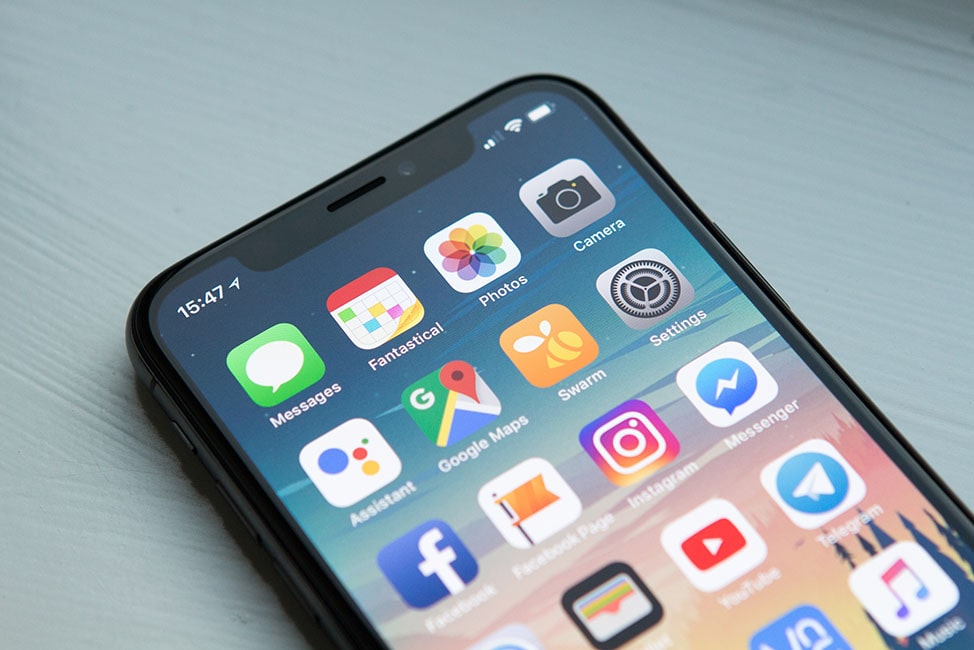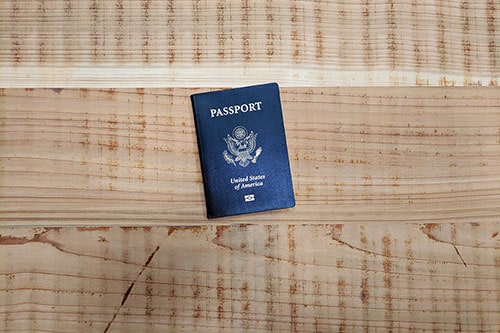We love sharing our experiences as Shanghai expats, including our advice for adjusting to expat life in a crazy city of over 20 million. Yes, there are a lot of people, the metro is brutal at rush hour, and sometimes all of the aggressive mopeds and constant sound of people spitting can get on your nerves. We love our adorable lane house apartment, but issues with consistent hot water abound and our stairs are insanely steep. Hey, no one said this was going to be easy.
What is great about expat life in Shanghai is how quickly people are eager to share advice for improving day-to-day life with cutting-edge services and apps. China is way ahead of the curve on this front and with every new person we meet, we’re bound to learn about a few new services that we didn’t know existed.
“Do you use the Ayi Bang app to schedule an ayi to clean your apartment?” or “Let me tell you about this app where you can get a professional foot massage in your apartment.” Ah, China.
And while scheduling a house cleaner or a mid-afternoon foot massage in your living room might not apply to everyone’s daily routines, there are a load of apps that we consider essential for Shanghai expat life.
So are you thinking of coming to Shanghai, or did you just sign that work contract and have started the arduous visa process? This list is designed to help you got off on the right foot. Trust me – you want to know NOW that you can have pre-chilled craft beer and wine delivered to your apartment in under thirty minutes with the tap of a finger.
I mean, who doesn’t need that in their lives?
The Best Apps for Shanghai Expats
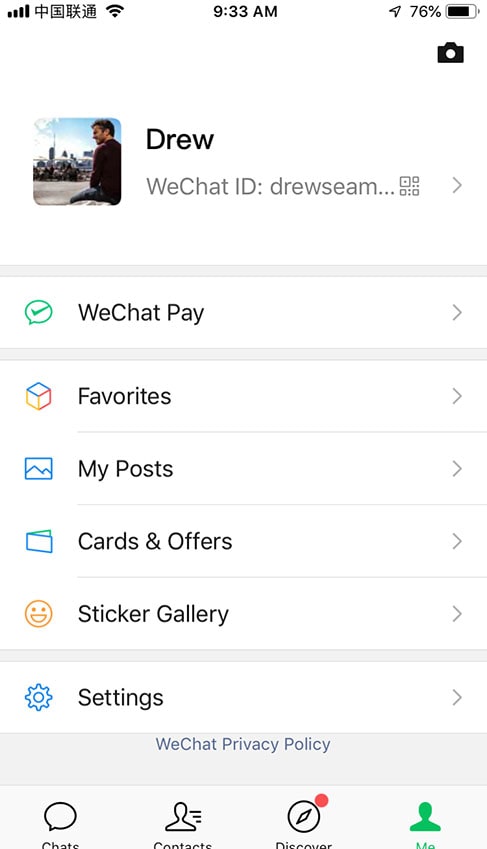
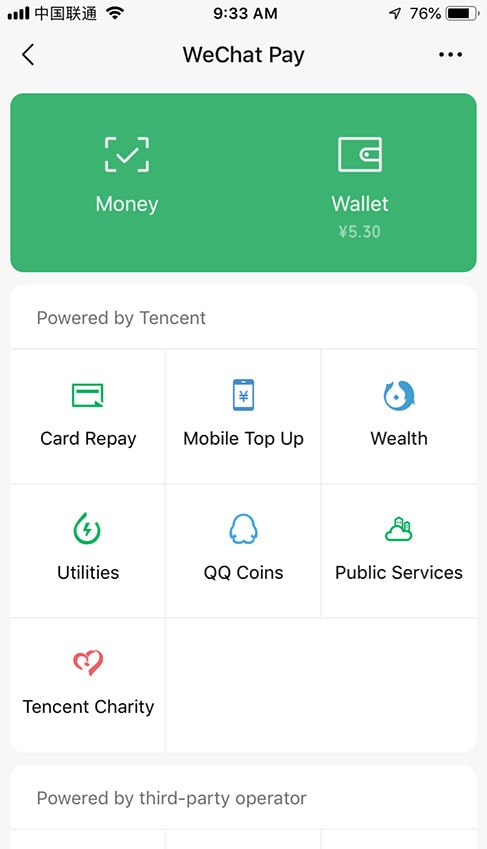
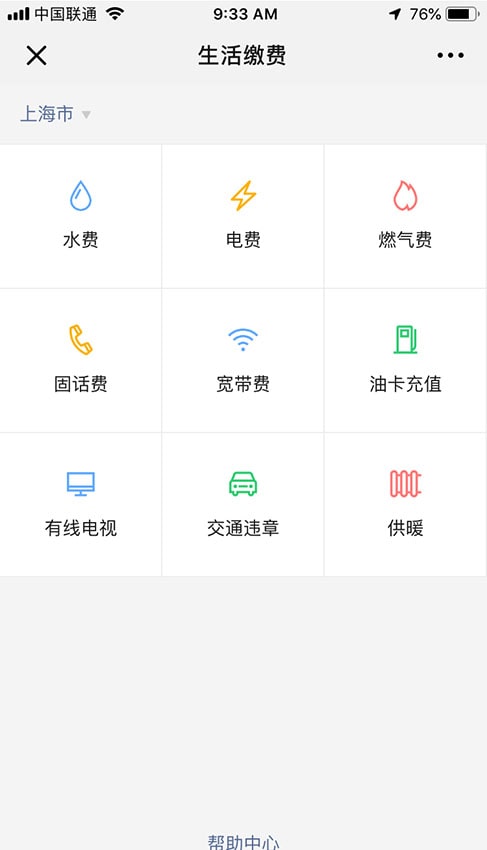
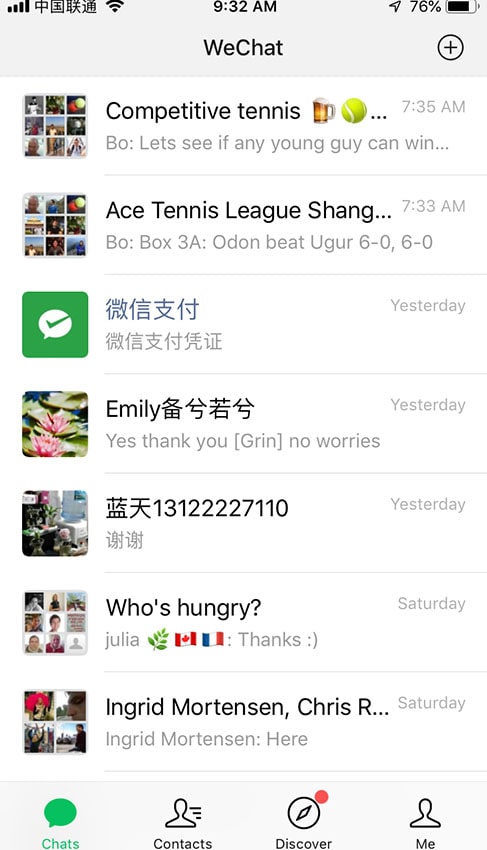
The Essentials
Let’s start with the basics: WeChat and AliPay.
Both of these are essential for daily life in China. These two apps are where you message friends, pay for lunch, top up the data on your mobile phone, pay your utilities or even buy movie tickets. They basically do everything. You link your local bank card to each app, and you can scan (or be scanned) to your heart’s content. There is literally no reason to use cash money while in China. I don’t even carry cash, just my phone.
Want a fluffy, steamed bao from a street stall? Just scan their QR code and transfer the ¥5. No need for cash or cards.
WeChat download Apple | download Android
WeChat is a combination of WhatsApp, Facebook, and Venmo, and has over 1 billion active monthly users. You can message your contacts under “Chats” and many organizations have group chats, updating you on everything from weather forecasts to upcoming activities in the city. Within the messaging function, you can also transfer money directly to people. The transaction is instant and there are no fees associated with it, so if your friends pay for a round of drinks, just shoot them a transfer quickly with your share of the bill. Easy.
For payments, you can click “Scan” which will use your phone’s camera to scan a QR code, or press “Money” to have your personal QR code appear so you can be scanned. Certain larger restaurant chains will even have QR codes you can scan that displays their whole menu, and you can order and pay all while sitting at your table. Almost everyone accepts WeChat, from taxi drivers to dumpling stands on the corner.
WeChat also functions as a sort of Facebook-like social media outlet, with people and companies posting photos and updates under their WeChat “Moments” feature.
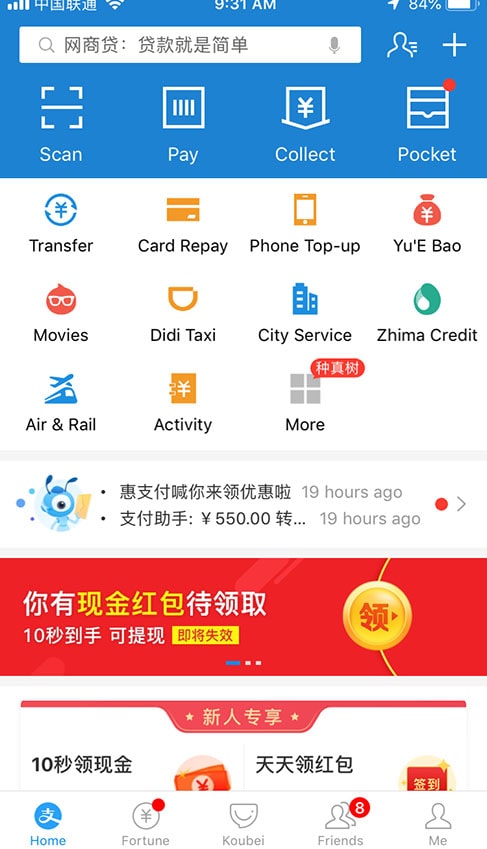
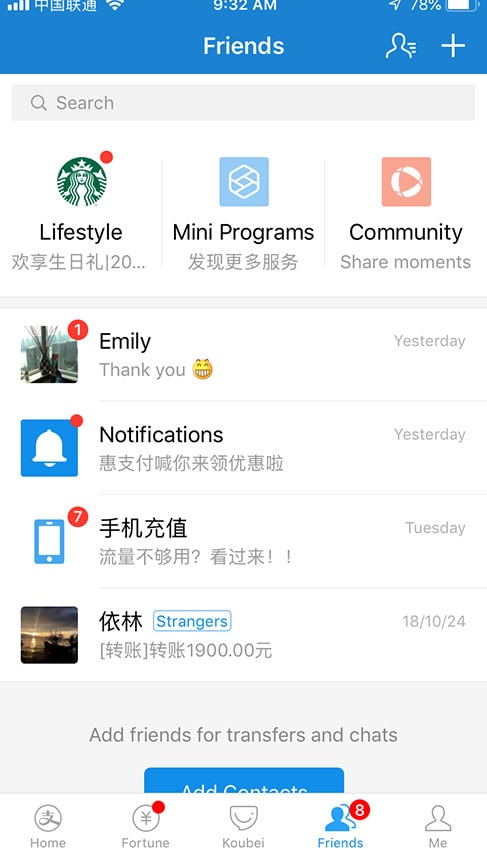
AliPay download Apple | download Android
AliPay is the main alternative to WeChat, though we almost exclusively use WeChat, except in a few specific cases. It functions much the same as WeChat, and has many of the same features. The difference is that we are able to transfer more money through AliPay than WeChat in a single transaction. And on occasion, a restaurant may only accept AliPay, since the transaction fee for vendors is smaller with AliPay than WeChat.
So it pays (pays…haha) to have both.
Chinese Translation
Yes, Shanghai is by far the most international city in China, but the language barrier is real and will impact your life daily. That is where Chinese translation apps come in handy (along with some Chinese language lessons, it really is helpful to be conversational in Chinese).
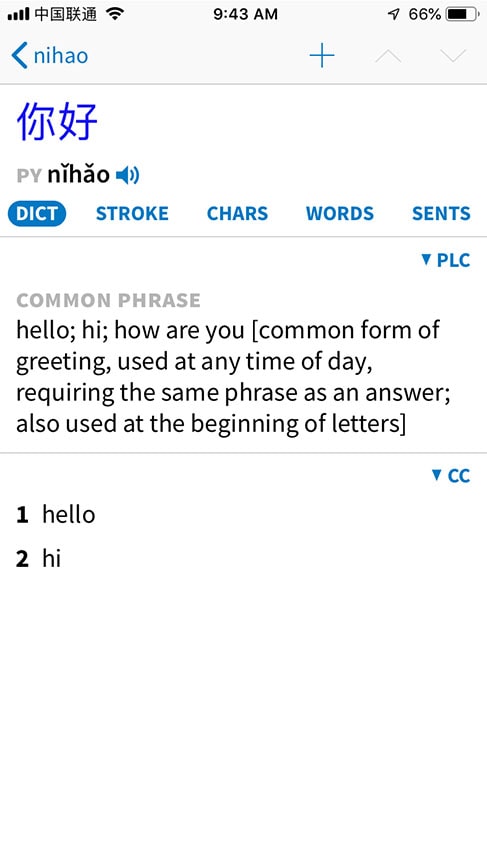
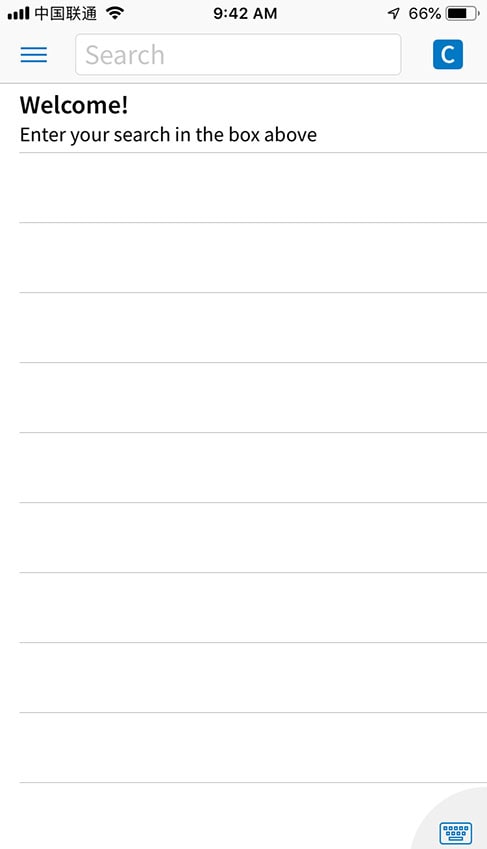
Pleco download Apple | download Android
Pleco is a free Chinese dictionary app (you can buy add-ons within the app) that gives provides translations in both characters and in pinyin. It is a super simple and efficient way of finding the correct word in Chinese without embarrassing yourself too much. As a bonus, the app works offline as well, so even without an internet connection, you can translate from English to Chinese.
The downside of the app is that it really only works with shorter translations. If you are looking to full sentences, then you need to download the next app.
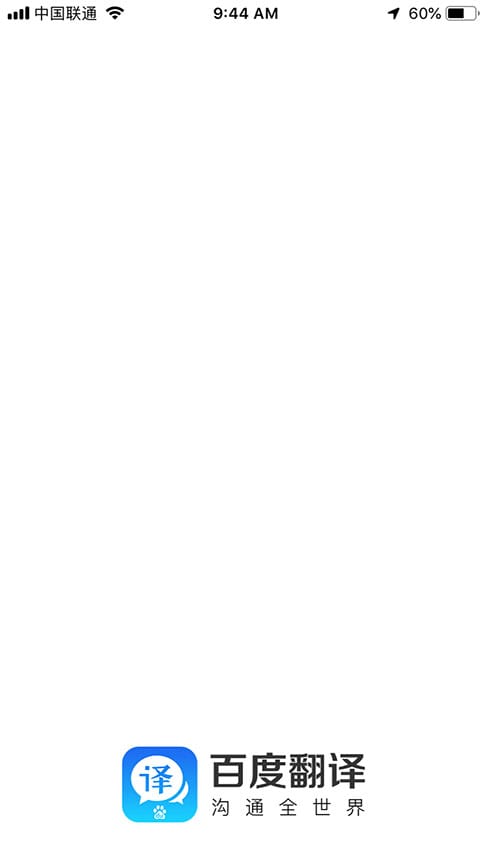
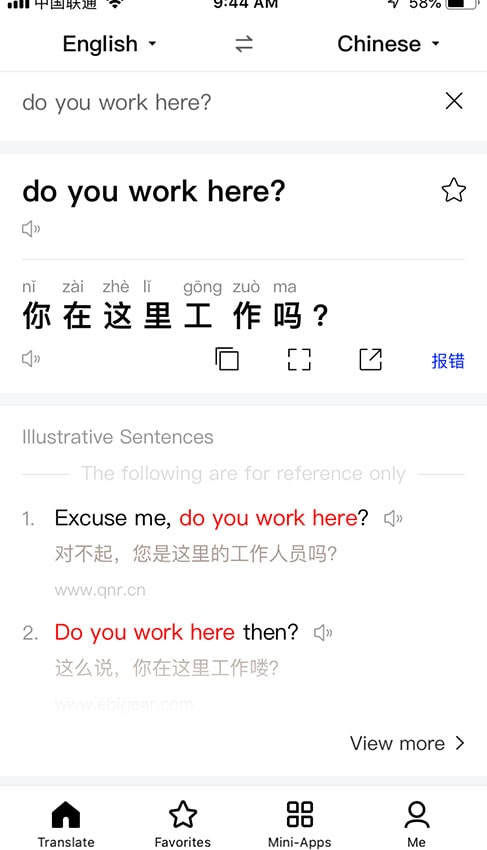
Baidu Translate download Apple
Baidu is the Google of China and one of their best apps is Baidu Translate. It works without the need for a VPN which is the issue with Google Translate (more on VPNs later). Baidu Translate is fantastic for converting Chinese to English, though it does not function offline, which is why I still use both Pleco and Baidu Translate.
The best feature is the ability to use your camera to take a photo of Chinese characters, then using your finger, swipe over the characters you need to translate in the photo. It will give a rough translation in English, and it is helpful for small, quick translations. What is especially great – something most apps don’t do – is that Baidu Translate gives you the pinyin (phonetic pronounciation) as well as the English.
It is especially helpful in restaurants with menus only in characters. That way, you can learn the character for “pig liver” and know to avoid ordering that dish. Trust us on this.
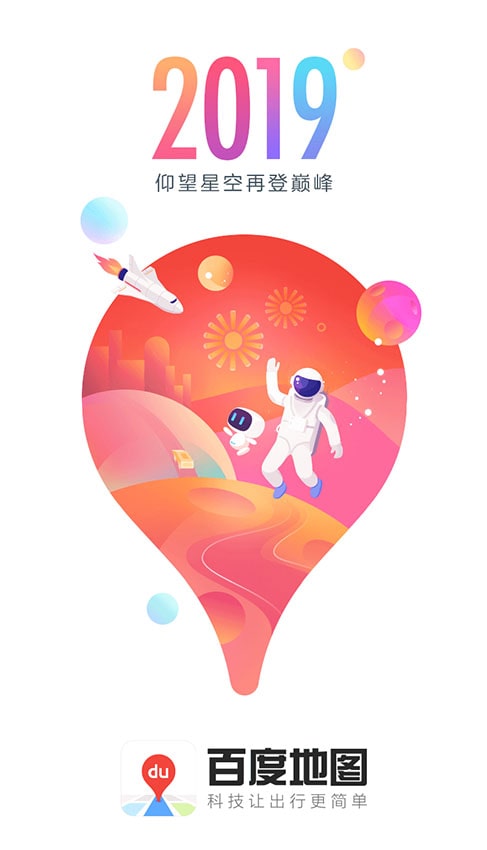
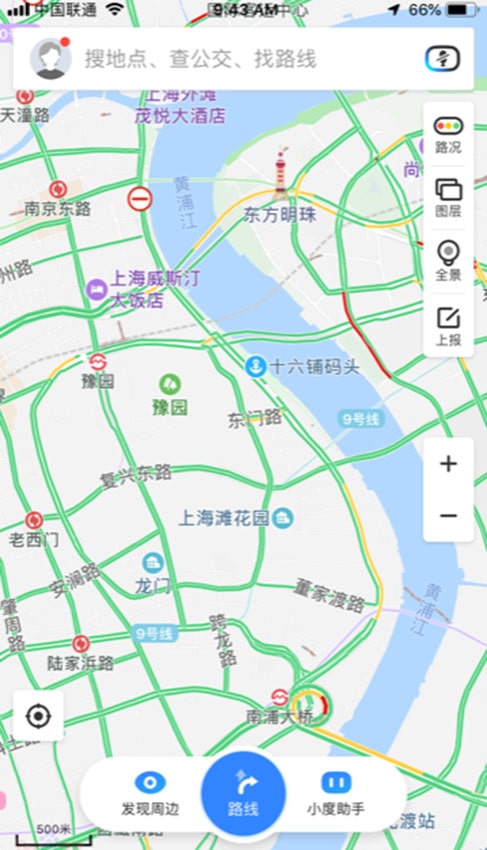
Getting Around
Baidu Maps download Apple | download Android
Baidu Maps is the most useful and reliable map app for Shanghai expats. Yes, Google Maps does work (though it require a VPN) and Apple Maps works (does not a need VPN) but they are not updated nearly as often, so stores and restaurants listed may have closed years ago. Plus, they are a bit unreliable with doing an address search.
Baidu Maps is built and designed to work in China, so it should not be surprising that it is the best. The only downside? It is entirely in Chinese. That maybe a major red flag for new Shanghai expats, but you can type English characters into their search bar and find the correct results. It takes a little time to get used to, but it is the most reliable for daily life in Shanghai.
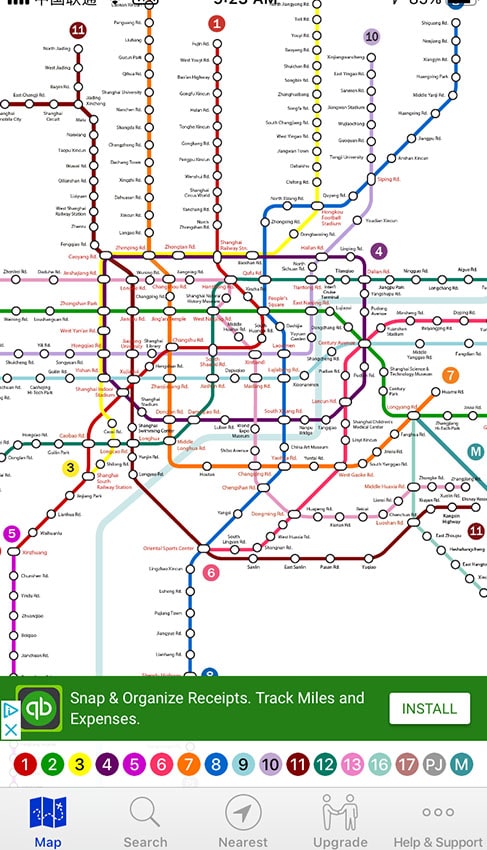
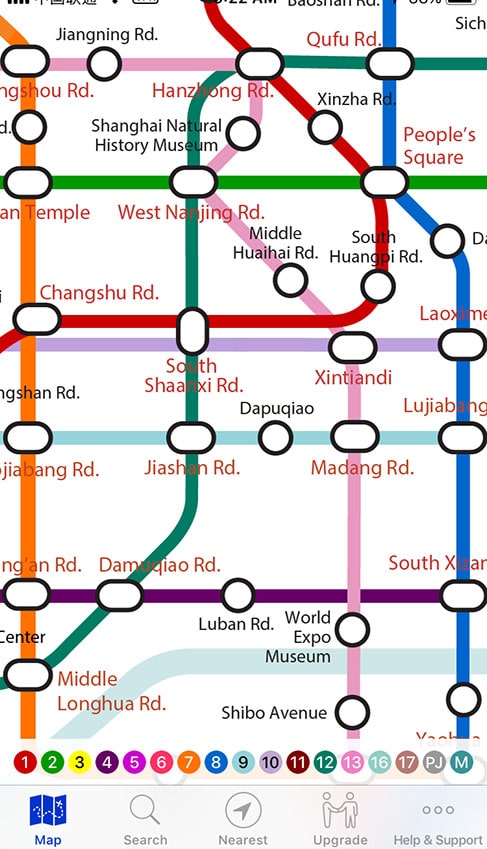
Shanghai Metro download Apple | download Android
This is a super simple app that shows all of the metro lines around Shanghai and is available in English. There are 17 lines that snake all over the city and out to the furtherest reaches of the city limits. We ride the metro constantly, as the fares are very inexpensive, the trains come all the time, and the stations and trains are clean and efficient. This app lays out the complicated network in an easy to use manner. It does not have a ton of advanced features, but sometimes simplicity is best.

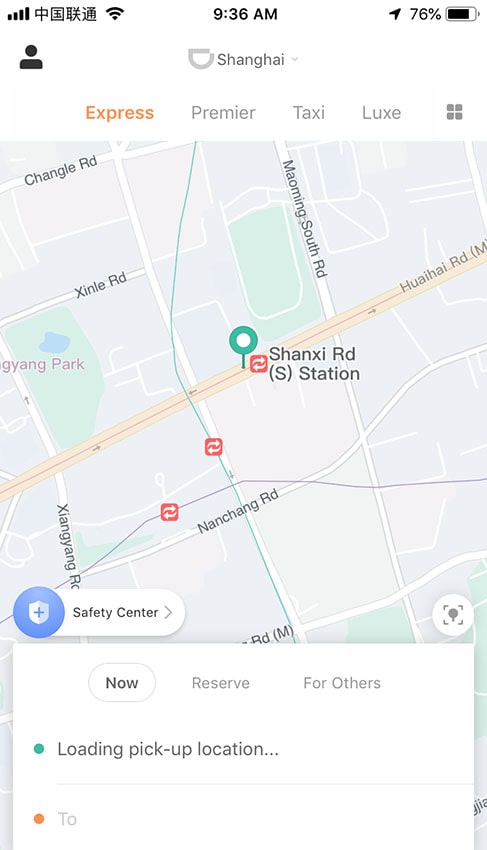
Didi download Apple | download Android
If you have ever used Uber, then Didi will be very familiar. In the battle for supremacy in China, Uber lost out to Didi, and now it is the only major game in town. The app functions exactly like Uber (I’m pretty sure they use the same software) and is easy to set up and connect your local bank card.
They have also built in a messaging feature that is helpful for those who do not speak Chinese. Even though you have presumably dropped a pin at exactly where you are standing, you will always get a call from your Didi driver asking you where to pick up. To avoid the language barrier, there are set message replies built into the app. You can send messages directly to your driver that are translated into Chinese for them, and their replies are automatically translated back into English.
BONUS TIP: Bike sharing apps are also very popular in China, with Ofo and Mobikes (currently being rebranded into Meituan Bike). You sign up and pay a ¥100 deposit, then scan the QR code on the back of the bike when you need a ride. It really took off a few years ago, but the hysteria has died down and there has been some backlash. The streets were absolutely flooded at one point, and sidewalks were blocked with discarded bicycles all over the city and country as more and more start-up companies dropped off thousands of new bikes. The apps still work, but I see far fewer bikes than even six months ago. For ease and cost, it still is one of the best ways to get around the city.
Connecting with a VPN
VPN (virtual private network) allows internet users to mask their location and get around the Great Firewall. You can trick your phone or computer into thinking you are in London or Los Angeles, and gain full access to things like Netflix, Facebook, or Google. Basically, all expats in China use a VPN and there are a variety of options.
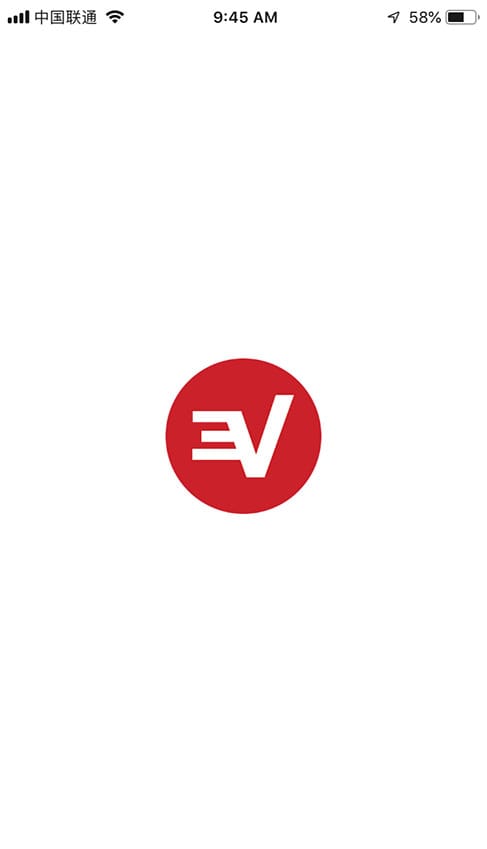
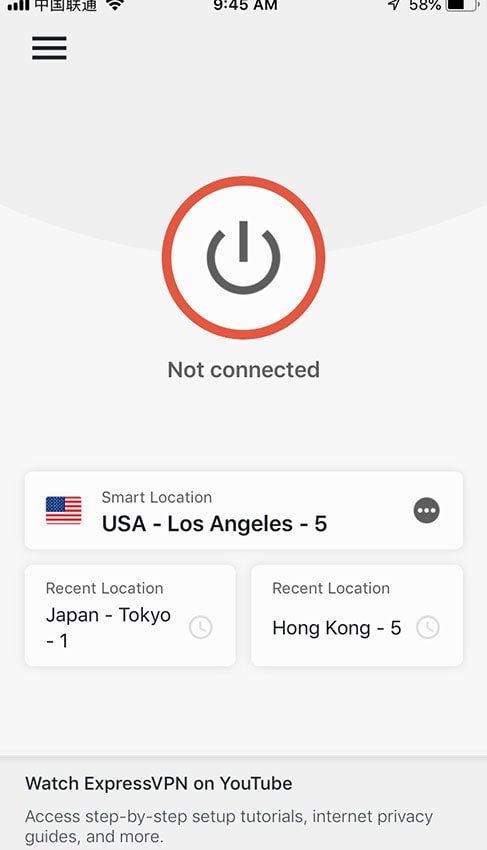
Express VPN download Apple | download Android
Express VBP is the first VPN we used when we first relocated to China and one we still use here in Shanghai. It is one of the largest and most reliable VPNs available on the market. It costs about $99 for a one year subscription, but it is worth the investment. In fact, no free VPN is worth your time. They simply will not work very well, so you will need to spend a little cash to solve your internet problems.
You can link up to 5 devices with Express VPN, including phones, iPads, and computers. They are constantly updating their software for both mobile and desktop devices, so you will have to check to make sure you have the latest update running, or else you may have connectivity issues.
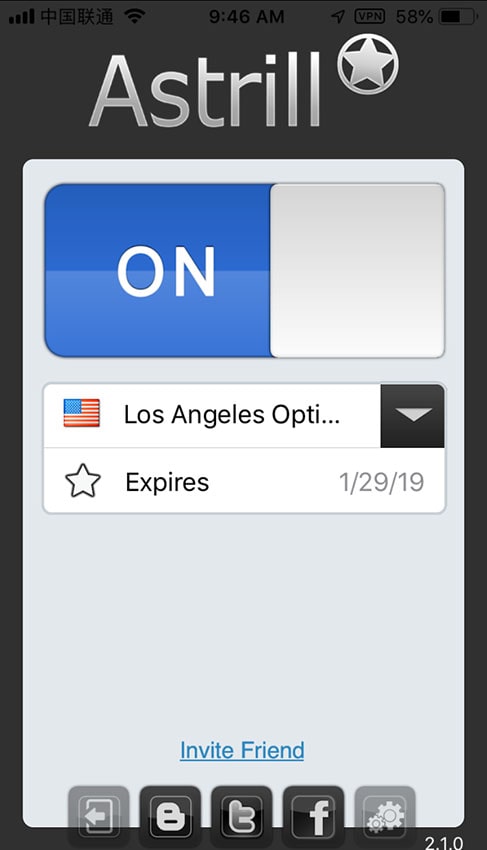
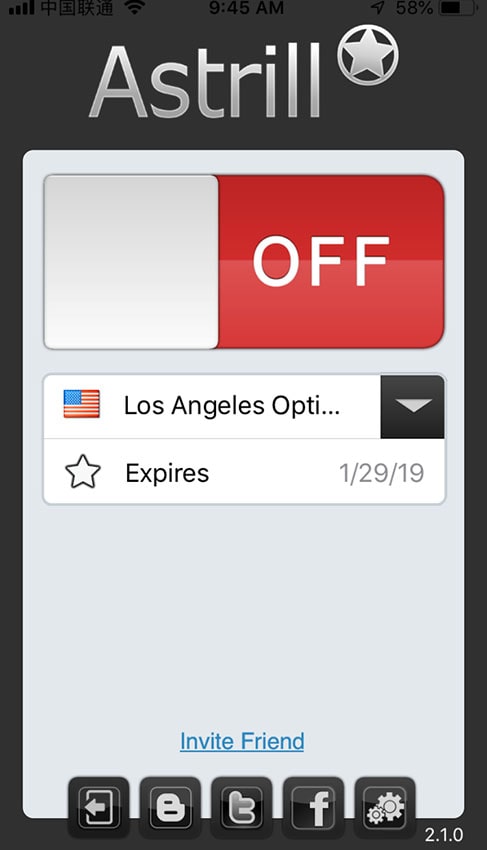
Astrill VPN download Apple | download Android
Last year, we experienced a problem with Express VPN, which meant we weren’t able to access sites and stream media for a period of about a week. During that period, we asked some friends in Shanghai what VPN to use, and they all said Astrill. It functions just like Express VPN. It tends to connect more quickly than Express VPN, but it does occasional run into technical issues, where I get “stale configuration” messages during a failed connect.
Like Express VPN, you need to pay for Astrill, which runs about $16 per month, with annual plans offered at a slight discount.
Food/Grocery/Booze Delivery

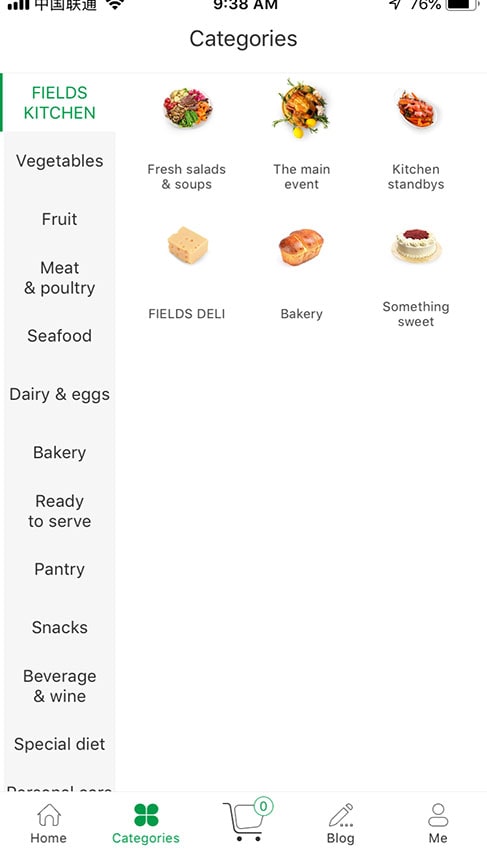
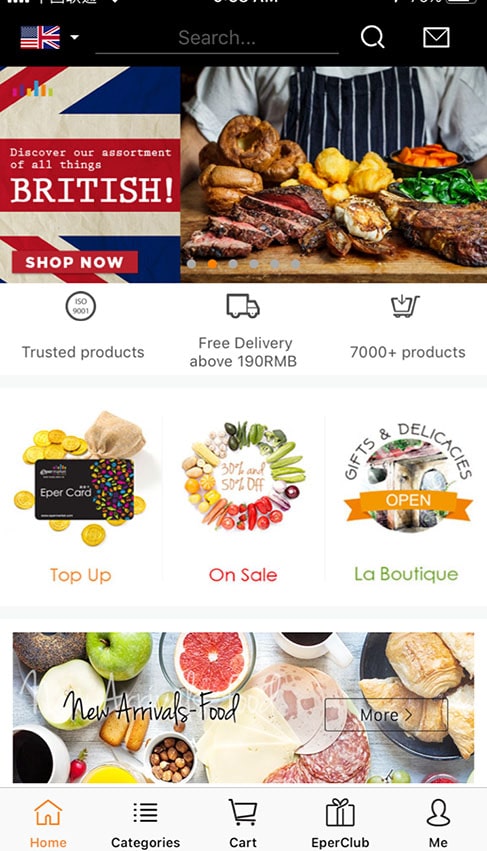
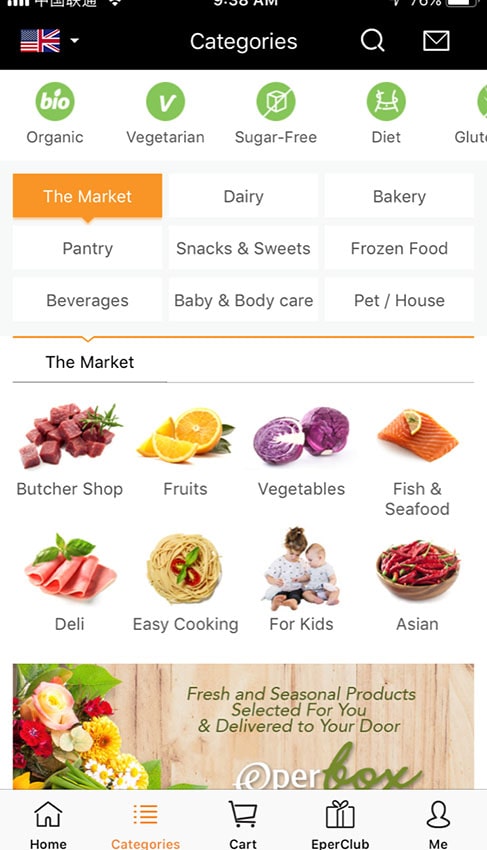
Fields download Apple | download Android
Epermarket download Apple
Fields and Epermarket are the two most widely used grocery delivery services in Shanghai. They do not have physical stores and only exist online and through their apps. They cater specifically to expats, which means a wide variety of international goods and pantry staples, though the convenience comes with a price.
You can use the app to add items to your basket, searching for goods by category, and then simply checkout and pay with WeChat or AliPay (international credit cards are accepted as well). The standard delivery windows for both are between 2-3 hour slots, starting from 6am and ending at 11pm.
I especially like the 2-for-1 deals that Fields offers, though Epermarket has a few specific items that I cannot get on Fields, so I tend to alternate between the two.
BONUS TIP: I buy most of my meat and pantry items from Fields or Epermarket, but fresh produce is generally significantly more expensive than any local market or store. I shop for my vegetables from a small market around the corner from our building, and the quality of the fresh produce is quite high and a fraction of the cost of the online stores.
***UPDATE: Fields abruptly shutdown in April 2019. So, Epermarket it is!
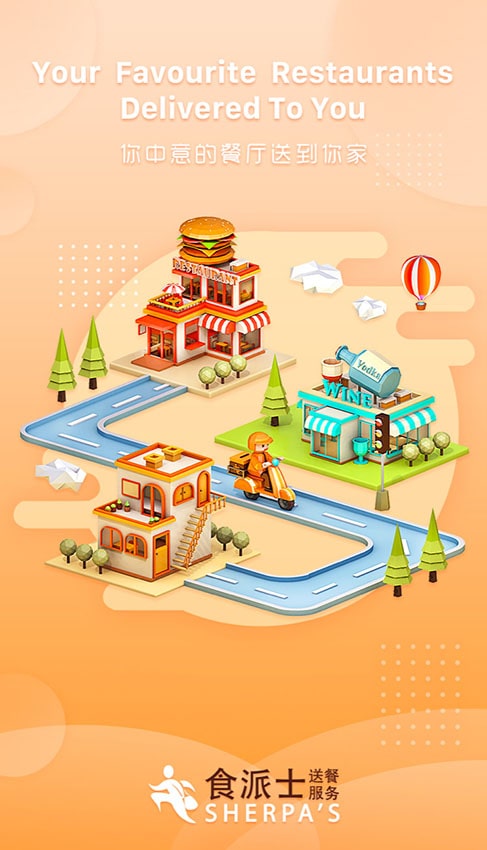
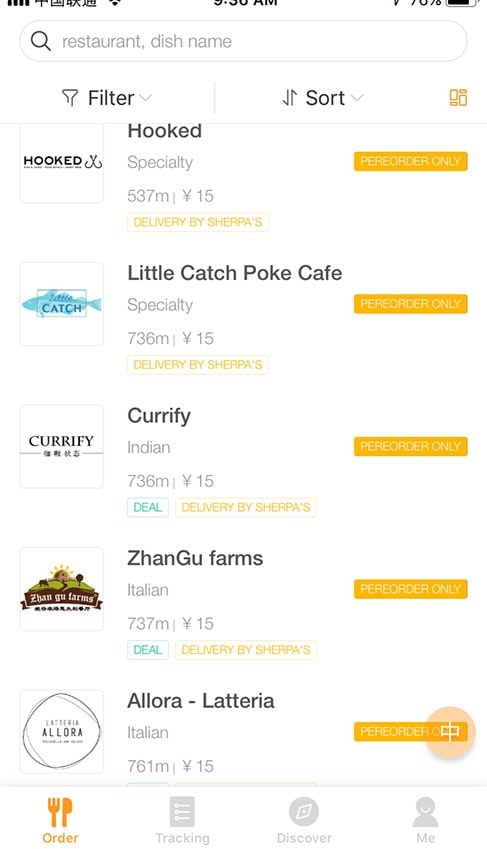
Sherpa’s download Apple
If you are looking for restaurant delivery, than Sherpa’s is your best bet for an English-friendly app. Other local apps, like 饿了么(e.le.me), are only in Chinese and a bit hard to navigate for newbies to the Shanghai expat scene. You can get delivery from hundreds of restaurants, from fast food to high end places, usually within 45-75 minutes.
The app is easy to navigate, and the restaurant’s full menu is displayed, usually with pictures. There is a ¥15 fee for all deliveries, which is added prior to checkout. Again, you can simply use WeChat or AliPay from within the Sherpa’s app to pay for the order. There are plenty of Chinese restaurants on offer, but this app really specializes in the Western restaurants.
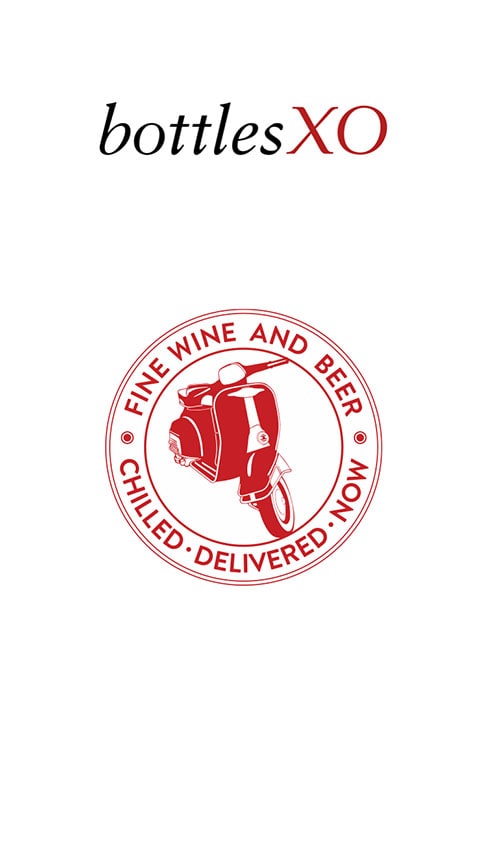
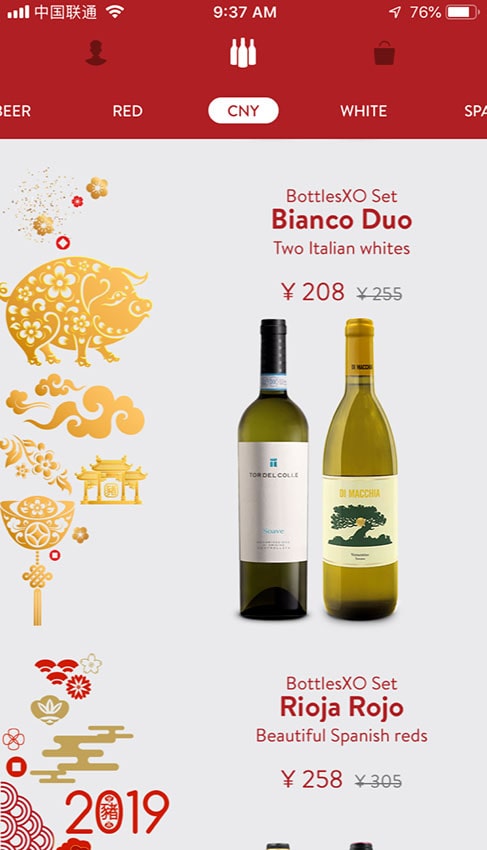
Bottles XO download Apple | download Android
Okay, this might not be a necessary app for everyone, but it is one of our favorites, so we had to include it on our list. Bottles XO is an app that does beer, wine, and liquor deliveries within thirty minutes of ordering. The team behind Bottles XO runs a bar in Xuhui, where the delivery business is based.
What I like best is that they have a well curated selection of wines, beers, and spirits that you don’t see around the city, not even in the major international grocery stores. They even sell cocktail sets, like a Moscow Mule set that includes a craft vodka and four bottles of spicy ginger beer. How fun! And if you are having some friends over, and someone forgot to buy enough beer or that bottle of Champagne for a celebration, don’t worry. Bottles XO deliveries their sparking, white wine, and beer already chilled. Pure genius.
And if it couldn’t get any better, the app is incredibly well designed. Once your delivery is loaded onto a moped and is out for delivery, you can track the moped on GPS within the app, so you know exactly how far away your delivery is.
Air Quality
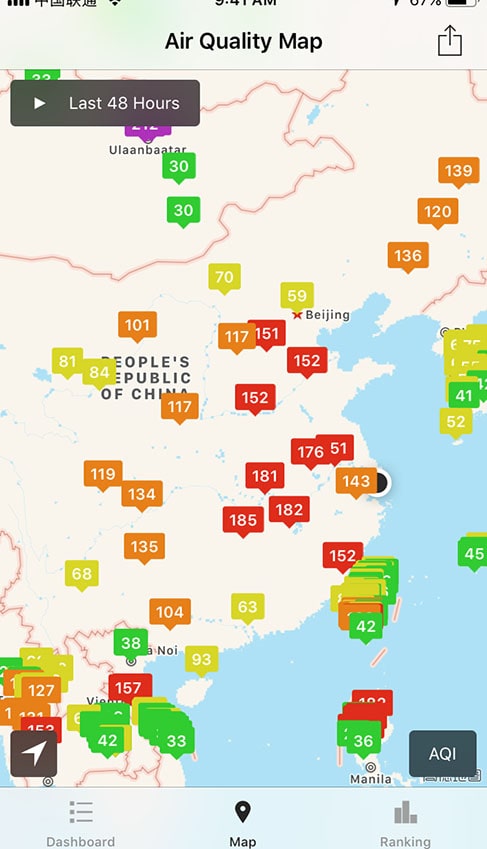
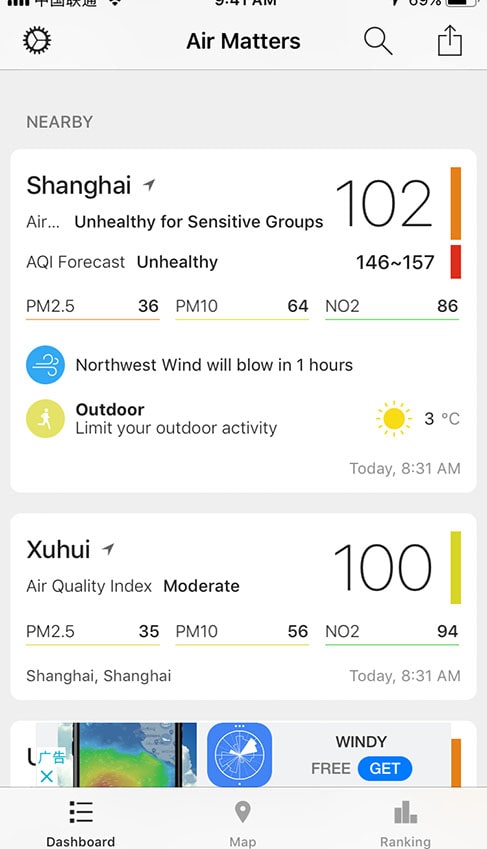
Air Matters download Apple | download Android
The air quality is a daily topic of conversation among Shanghai expats. Asking “Hey, what’s the air quality like today?” may seem weird to newcomers, but trust us, it becomes the norm for expat life in China. For some expats, a certain reading means donning a face mask to help shield from the bad air.
Air Matters is one of the best apps for this, and can give readings from cities all over the world. So even if you are traveling abroad, you can see what is going on with the air. It’s free and easy to use, though also a bit depressing when you open it up to see the AQI (air quality index) at 180, officially deemed “unhealthy.”
Events, Activities, and News

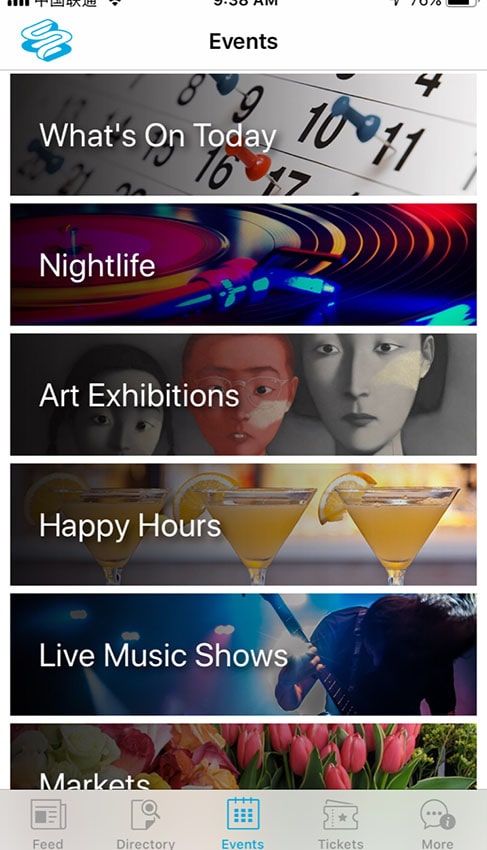
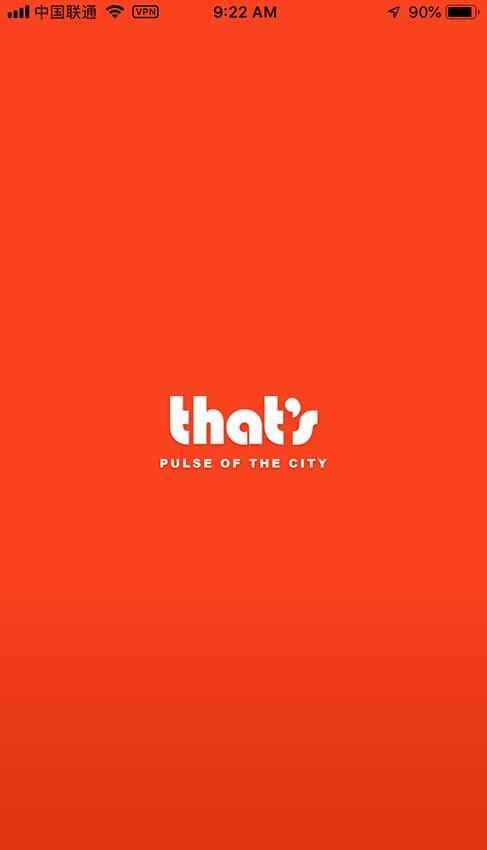
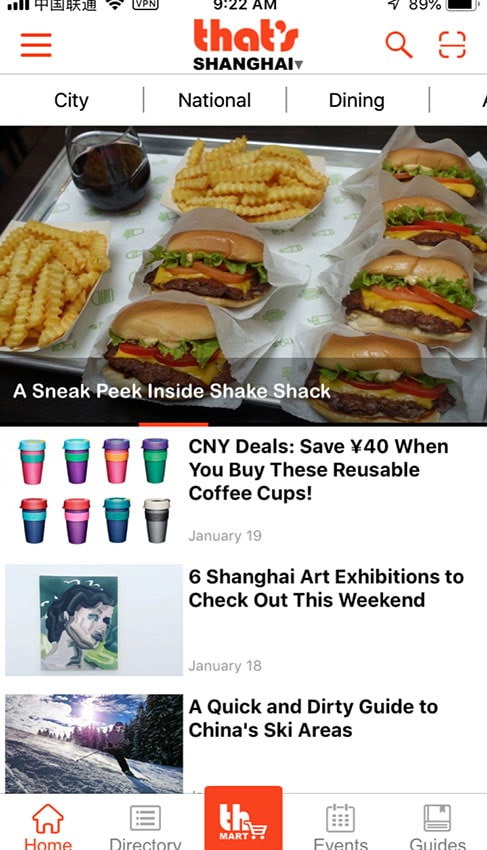
SmartShanghai download Apple | download Android
That’s Mag download Apple | download Android
These are the two best outlets for updates on what is going on around the city, from events to general news. SmartShanghai has a website and an app, while That’s Mag operates a print edition as well (they also cover other cities, including Shenzhen, Beijing, Guangzhou, Suzhou, and Tianjin). We check them all the time, especially if we have no plans over a weekend and want to find the latest art exhibition or comedy show.
SmartShanghai digs a little deeper into daily life with guides on schools, healthcare, and lots more. It is an especially great resource for people looking for housing, as their apartment listings are extensive and how many of our friends found their new home. On the other hand, That’s Mag really nails some of the “only in China” stories that make us laugh.
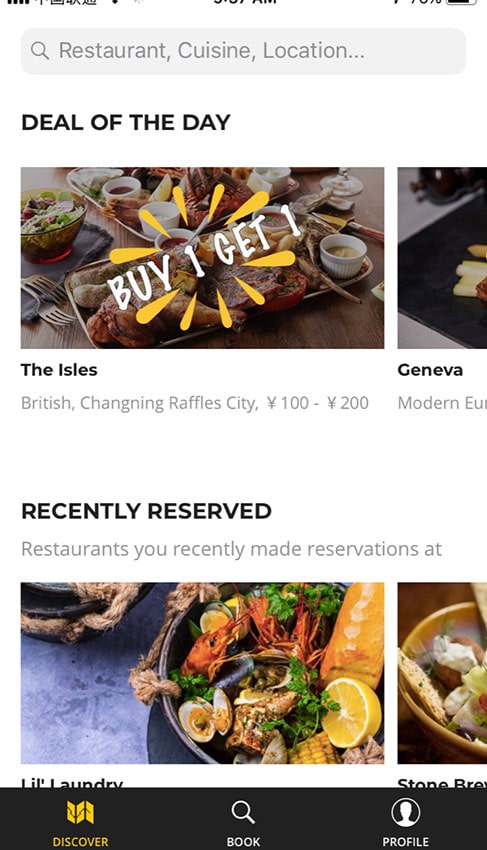
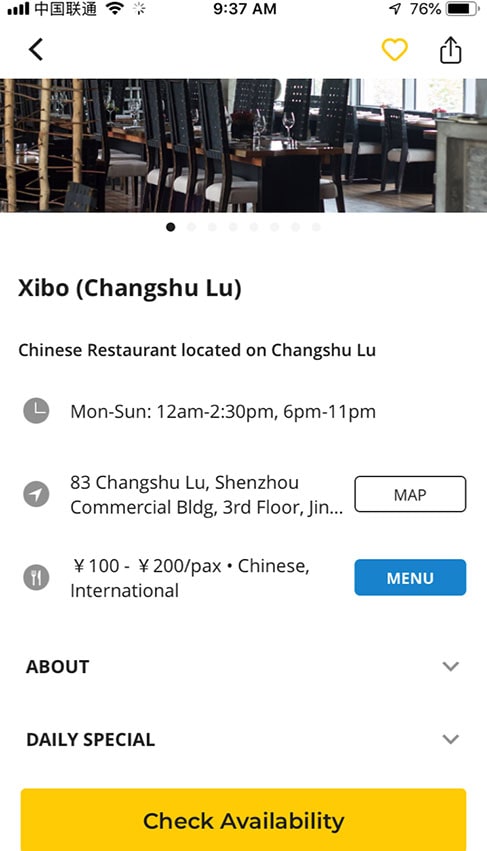
Chope download Apple | download Android
Chope is the main restaurant booking site for Shanghai. Platforms like OpenTable do exist, but their reach is incredibly limited. Chope has hundreds of restaurants, and for those who are not comfortable calling a restaurant in Chinese for a booking, Chope is a fantastic service. They add new restaurants to the service all the time, and almost all listings have restaurants’ full menus on display.
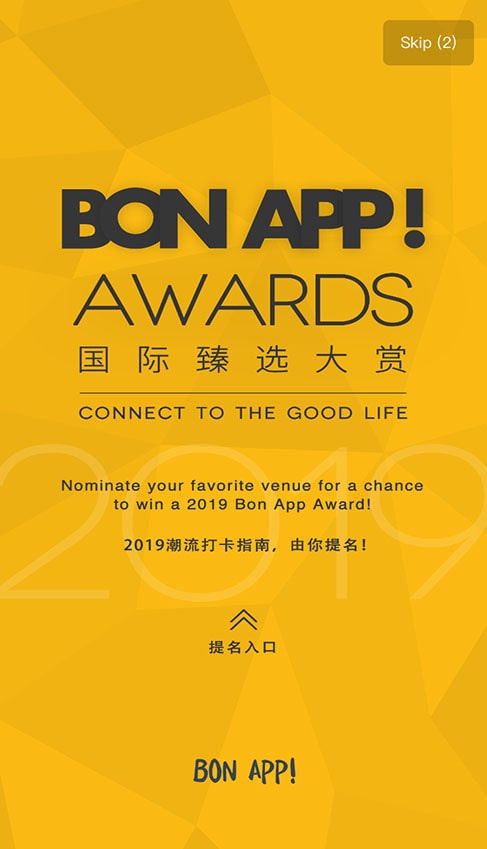
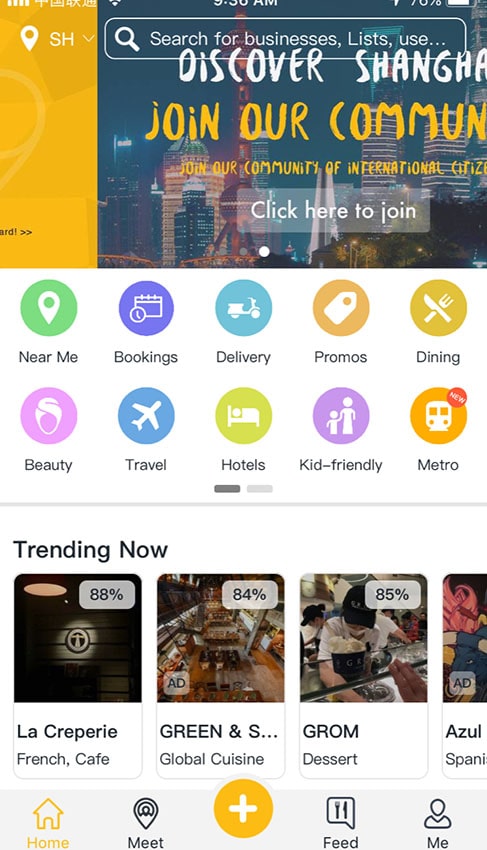
Bon App! download Apple | download Android
Bon App! operates a bit like Yelp, but for Shanghai and twelve other cites around Asia. We use it mostly for restaurant reviews, menus, and addresses for places that are not listed on Chope. You cannot book through the site, but it good to get an idea about what dishes people recommend, especially with regional Chinese restaurants where many of the dishes are unfamiliar to the average Western diner.
Go Download!
All right, that’s a wrap on our selections for the best apps for Shanghai expats. The future is now in China and we love diving deep into the technological advances that make a life in China unique and thrilling. While you go download for a while, we’ll be over here, putting in our grocery order, buying some wine and paying for it all from our phones. Enjoy!

